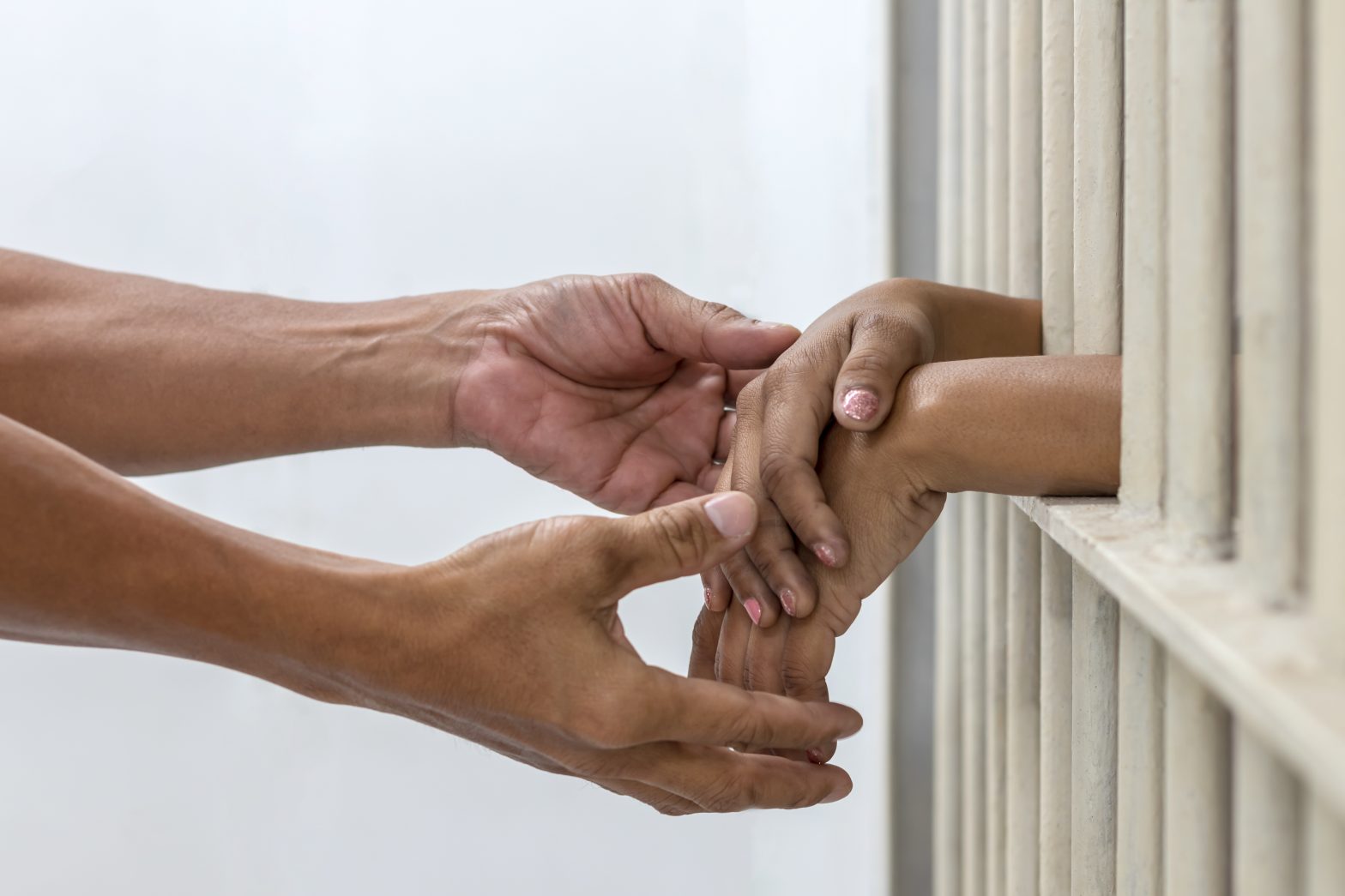By Victor Falcon Mmegwa
This article is a more detailed follow up to our instant report on 19th September about the Home Office response to the Brook House Inquiry. In this article, we will go into more detail about the Inquiry, as well as take a look at some of the recommendations made by Kate Eves, the Chair of the Brook House Inquiry. Stay tuned for part 2, which will look at the remainder of the recommendations made by Eves.
In their response to the inquiry, the Home Office confirmed that the abuse that took place at Brook House in 2017 was unacceptable.
The Home Office went on to say that they have made significant improvements since 2017 to uphold the welfare and dignity of those detained. This includes strengthening safeguards, promoting a culture of transparency and improving the oversight of contractors’ performance.
The Home Office stated that they remain committed to ensuring safety and security in all Immigration Removal Centres and to learn the lessons from Brook House to ensure these events never happen again.
A report published on 19 September 2023 by Kate Eves presented the results of a full investigation into the mistreatment of detainees at Brook House immigration removal centre (IRC). This was initiated by a BBC Panorama programme which was broadcasted in 2017 and saw an investigation take place between 1 April 2017 and 31 August 2017 at the IRC Brook House. At the time, the IRC was operated by the private contractor G4S.
The report disclosed a “toxic” culture at the IRC, with evidence that detainees suffered mistreatment contrary to Article 3 of the European Convention on Human Rights (ECHR). It was described that IRC Brook House was prison-like and unsuitable for detaining people. Staff used force inappropriately, as well as dehumanising, abusive, racist and derogatory language. The report also disclosed that the management was dysfunctional.
The Brook House Inquiry has exposed the inexcusable and immoral abuse of vulnerable people held in IRC by the Home Office. The Inquiry found the safeguarding system in IRC to be dysfunctional resulting in a failure to protect detained people as intended. The Inquiry disclosed that vulnerable people were exposed to the risk of mistreatment and were subjected to actual harm. There were 19 incidents of credible breaches of Article 3 of the ECHR, which prohibits torture, inhuman and degrading treatment within a 5-month period.
Detained people were found to have been allowed to deteriorate in their mental and physical health. Such failures were found to be connected with the inappropriate use of segregation and a quick resort to the use of force to manage incidents of self-harm and mental health crises. The Inquiry expressed that healthcare failures put vulnerable people at risk of deteriorating in their health, and example of mistreatment.
Kate Eves made a number of important recommendations on the IRC in general, including the introduction of a 28-day time limit.
Kate Eves recommendations
Recommendation 1: Robust monitoring of contract performance
The Home Office must actively and robustly monitor the performance of the Brook House contract, including satisfying itself that any self-reported information is accurate. This may include engagement with monitoring bodies and appropriate stakeholders. Penalties must be attached to inadequate self-reporting.
Recommendation 2: Contractual term requiring compliance with the overriding purpose of Rule 3 of the Detention Centre Rules 2001
The Home Office must ensure that each contract for the management of an immigration removal centre must expressly require compliance with the overriding purpose of Rule 3, which is to provide “the secure but humane accommodation of detained persons in a relaxed regime with as much freedom of movement and association as possible, consistent with maintaining a safe and secure environment, and to encourage and assist detained persons to make the most productive use of their time, whilst respecting in particular their dignity and the right to individual expression”. The provisions and operation of each contract must be consistent with and uphold the requirements of the Detention Centre Rules 2001, the Adults at Risk in Immigration Detention policy and the safeguards contained in detention services orders (including those concerning the use of force).
Recommendation 3: Limit on cell sharing
The Home Office must ensure that a maximum of two detained people are accommodated in each cell at Brook House
Recommendation 4: Ensuring computer and internet access
The Home Office and its contractors must ensure reasonable access to computers and the internet. Contractors must comply in full with Detention Services Order 04/2016: Detainee Access to the Internet, in particular:
- Computers and the internet provided for detained people’s use must be maintained and fixed, if broken, within a reasonable time period, in order to allow detained people to access the internet for a minimum of seven hours per day, seven days per week.
- Websites containing personal internet-based email accounts must not be blocked, since this is not a prohibited category of website.
- Websites facilitating the provision of legal advice and representation must not be blocked, as this is not a prohibited category of website.
Recommendation 5: Undertaking and complying with cell‑sharing risk assessment
The Home Office must ensure that adequate risk assessment for cell sharing is carried out by contractors in relation to every detained person. This must be done at the outset of detention and then repeated at reasonable intervals (at least every 14 days) or following any relevant change in circumstances. In the event that an immigration removal centre is unable to detain someone in accordance with the outcome of a risk assessment (due to capacity or for other reasons), the Home Office must ensure that the individual does not remain at that centre.
Recommendation 6: Review of the lock-in regime
The Home Office, in consultation with the contractor responsible for operating each immigration removal centre, must review the current lockin regime and determine whether the period of time during which detained people are locked in their cells could be reduced. The Inquiry does not consider cost alone to be a sufficient justification for extensive lock-in periods.
Recommendation 7: A time limit on detention
The government must introduce in legislation a maximum 28-day time limit on any individual’s detention within an immigration removal centre.
Recommendation 8: Mandatory training on Rule 34 and Rule 35 of the Detention Centre Rules 2001
The Home Office (in collaboration with NHS England as required) must ensure that comprehensive training on Rule 34 and Rule 35 of the Detention Centre Rules 2001 is rolled out urgently across the immigration detention estate. Staff must be subject to refresher training, at least annually. Attendance must be mandatory for all staff working in immigration removal centres and those responsible for managing them, as well as GPs and relevant Home Office staff. Consideration must be given as to whether such training should be subject to an assessment.
Recommendation 9: Review of the operation of Rule 35 of the Detention Centre Rules 2001
The Home Office must, across the immigration detention estate, assure itself that all three limbs of Rule 35 of the Detention Centre Rules 2001 (reports by a medical practitioner where: (i) it is likely that a detained person’s health would be injuriously affected by continued detention (Rule 35(1)); (ii) it is suspected that a detained person has suicidal intentions (Rule 35(2)); or (iii) there is a concern that a detained person may have been a victim of torture (Rule 35(3))) are being followed, are operating effectively and are adequately resourced, in recognition of the key safeguarding role that the Rule plays. The Home Office must also regularly audit the use of Rule 35 in order to identify trends, any training needs and required improvements.
Recommendation 10: Clarification on the use of Rule 40 and Rule 42 of the Detention Centre Rules 2001
The Home Office must amend, as a matter of urgency, Detention Services Order 02/2017: Removal from Association (Detention Centre Rule 40) and Temporary Confinement (Detention Centre Rule 42) and, if necessary, the Detention Services Operating Standards Manual for Immigration Service Removal Centres, to clarify who can authorise use of Rule 40 and Rule 42 of the Detention Centre Rules 2001, in both urgent and non-urgent circumstances, including providing a definition of the term ‘manager’ in Rule 40(2) and Rule 42(2). In anticipation of the update to Detention Services Order 02/2017, the Home Office must issue an immediate instruction to communicate this clarification to staff and contractors operating immigration detention centres.
Recommendation 12: Training in relation to Rule 40 and Rule 42 of the Detention Centre Rules 2001
The Home Office and contractors operating immigration removal centres must provide regular training, at least annually, on the operation of Rule 40 and Rule 42 of the Detention Centre Rules 2001, which must include:
- that Rules 40 and 42 are the only powers under which detained people in immigration removal centres can be removed from association and/or located in temporary confinement;
- who is permitted to authorise use of those Rules and in what circumstances they may be authorised;
- that Rules 40 and 42 cannot be used as a punishment or solely for administrative convenience before a planned removal or transfer; and
- the need to assess any adverse effect that use of Rule 40 or Rule 42 could have on a detained person’s physical or mental health, and to consider any steps that could be taken to mitigate those effects. Attendance must be mandatory for all staff working in immigration removal centres and those responsible for managing them. The training must be subject to an assessment.
Recommendation 13: Audit of use of Rule 40 and Rule 42 of the Detention Centre Rules 2001
The Home Office must regularly (and at least quarterly) audit the use of Rule 40 and Rule 42 across the immigration detention estate, in order to identify trends, any training needs and required improvements. In addition, HM Inspectorate of Prisons and the National Chair and Management Board of Independent Monitoring Boards must review processes to consider how they fulfil their oversight role in respect of Rule 40 and Rule 42, and report on the monitoring of the use of Rules 40 and 42 going forward.
Recommendation 14: Handcuffing behind backs while seated
The Home Office and contractors operating immigration removal centres must ensure that all staff are aware that the technique of handcuffing detained people with their hands behind their back while seated is not permitted, given its association with positional asphyxia.
Recommendation 15: A new detention services order about the use of force
The Home Office must introduce, as a matter of urgency, a new and comprehensive detention services order to address use of force in immigration removal centres. The detention services order must include the following issues:
- the permissible justifications for the use of force within immigration removal centres, based on the key principle that force must not be used unnecessarily and must be used only as a last resort;
- the use of Personal Protective Equipment (PPE), including that it must be subject to a dynamic risk assessment before and during any use of force incident;
- the protection of dignity when force is used on a naked or near-naked detained person;
- the circumstances in which force can be used against a detained person with mental ill health; and
- monitoring, oversight and reporting of use of force by contractors and by the Home Office. The Home Office must ensure that training about the application of the new detention services order and use of force techniques takes place on a regular (at least annual) basis for all detention staff as well as healthcare staff. Attendance must be mandatory for all staff working in immigration removal centres and those responsible for managing them. The training must be subject to an assessment.
In anticipation of a new detention services order on the use of force in immigration detention, the Home Office must issue an immediate instruction to its contractors managing immigration removal centres that force must be used only as a last resort, using approved techniques.
Recommendation 16: Urgent review of use of force on detained people with mental ill health
The Home Office must urgently commission an independent review (with the power to make recommendations) of use of force on detained people with mental ill health within immigration removal centres. The review must consider:
- how, when and whether to use force on detained people with mental ill health (including the application of pain-inducing techniques);
- the likely effect of the use of force on a detained person’s mental health;
- the use of individual risk assessments for detained people, which could be conducted by personal officers and healthcare professionals; and
- the increased use and prioritisation of de-escalation techniques for those who have mental ill health. The review must take place in consultation with relevant stakeholders, including detained people’s representative groups and mental ill health experts.
The recommendations of the review must be incorporated in the new detention services order regarding the use of force (see Recommendation 15), in respect of which additional, regular (at least annual) training must then be provided.
A statement by the Home Secretary, Suella Braverman, in response to the Inquiry’s report states: “The Government takes the welfare and safety of those we detain very seriously and has made significant improvements to immigration detention since the dates covered by the Inquiry. … We will carefully consider the findings of this Inquiry in its detailed report, including the recommendations in relation to the management of the immigration detention estate and the welfare of detained individuals.”
This concludes part 1 of our look at the Brook House IRC Inquiry. The next article in the series will focus on the second half of the recommendations made by Kate Eves in the report.
For more articles like this, subscribe to our newsletter today.
Have questions about this article? Get in touch today!
Call us on 020 7928 0276, our phone lines are open and we will be taking calls from 9:30am to 6:00pm.
Email us on info@lisaslaw.co.uk.
Use the Ask Lisa function on our website. Simply enter your details and leave a message, we will get right back to you: https://lisaslaw.co.uk/ask-question/
Or, download our free app! You can launch an enquiry, scan over documents, check progress on your case and much more!






I don’t think the title of your article matches the content lol. Just kidding, mainly because I had some doubts after reading the article.
Can you be more specific about the content of your article? After reading it, I still have some doubts. Hope you can help me.